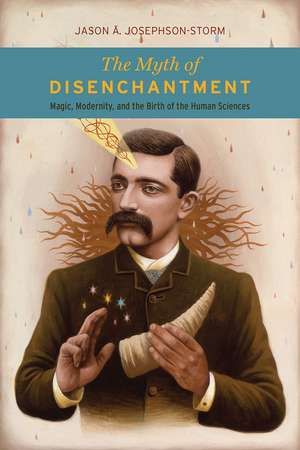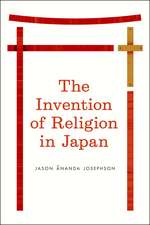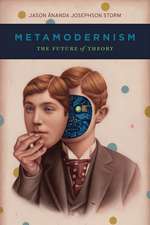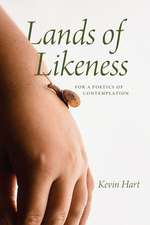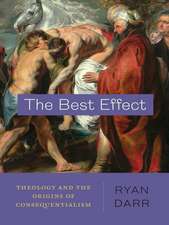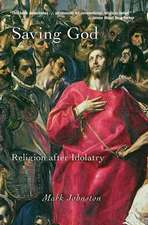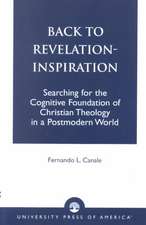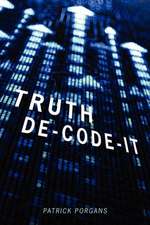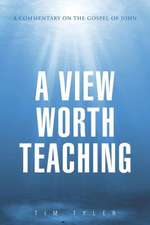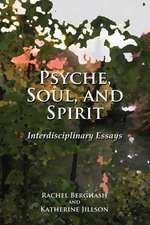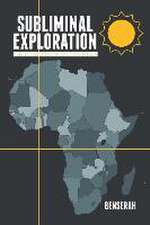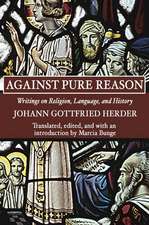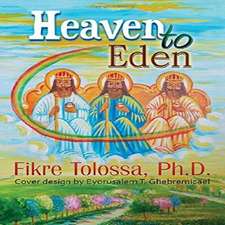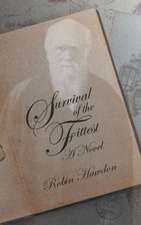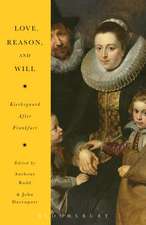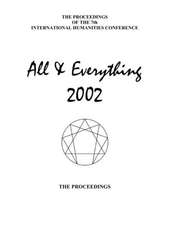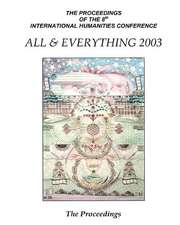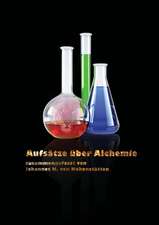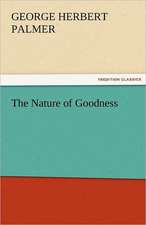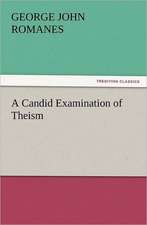The Myth of Disenchantment: Magic, Modernity, and the Birth of the Human Sciences
Autor Jason Ananda Josephson Stormen Limba Engleză Paperback – 16 mai 2017
A great many theorists have argued that the defining feature of modernity is that people no longer believe in spirits, myths, or magic. Jason Ā. Josephson-Storm argues that as broad cultural history goes, this narrative is wrong, as attempts to suppress magic have failed more often than they have succeeded. Even the human sciences have been more enchanted than is commonly supposed. But that raises the question: How did a magical, spiritualist, mesmerized Europe ever convince itself that it was disenchanted?
Josephson-Storm traces the history of the myth of disenchantment in the births of philosophy, anthropology, sociology, folklore, psychoanalysis, and religious studies. Ironically, the myth of mythless modernity formed at the very time that Britain, France, and Germany were in the midst of occult and spiritualist revivals. Indeed, Josephson-Storm argues, these disciplines’ founding figures were not only aware of, but profoundly enmeshed in, the occult milieu; and it was specifically in response to this burgeoning culture of spirits and magic that they produced notions of a disenchanted world.
By providing a novel history of the human sciences and their connection to esotericism, The Myth of Disenchantment dispatches with most widely held accounts of modernity and its break from the premodern past.
Josephson-Storm traces the history of the myth of disenchantment in the births of philosophy, anthropology, sociology, folklore, psychoanalysis, and religious studies. Ironically, the myth of mythless modernity formed at the very time that Britain, France, and Germany were in the midst of occult and spiritualist revivals. Indeed, Josephson-Storm argues, these disciplines’ founding figures were not only aware of, but profoundly enmeshed in, the occult milieu; and it was specifically in response to this burgeoning culture of spirits and magic that they produced notions of a disenchanted world.
By providing a novel history of the human sciences and their connection to esotericism, The Myth of Disenchantment dispatches with most widely held accounts of modernity and its break from the premodern past.
Preț: 217.48 lei
Nou
Puncte Express: 326
Preț estimativ în valută:
41.63€ • 45.23$ • 34.99£
41.63€ • 45.23$ • 34.99£
Carte disponibilă
Livrare economică 31 martie-14 aprilie
Livrare express 15-21 martie pentru 33.51 lei
Preluare comenzi: 021 569.72.76
Specificații
ISBN-13: 9780226403366
ISBN-10: 022640336X
Pagini: 400
Ilustrații: 5 figures
Dimensiuni: 152 x 229 x 28 mm
Greutate: 0.61 kg
Ediția:1
Editura: University of Chicago Press
Colecția University of Chicago Press
ISBN-10: 022640336X
Pagini: 400
Ilustrații: 5 figures
Dimensiuni: 152 x 229 x 28 mm
Greutate: 0.61 kg
Ediția:1
Editura: University of Chicago Press
Colecția University of Chicago Press
Notă biografică
Jason Ā. Josephson-Storm is associate professor in and chair of the Department of Religion at Williams College. He is the author of The Invention of Religion in Japan, also published by the University of Chicago Press.
Cuprins
Preface and Acknowledgments
A Note on Texts and Translations
Introduction
A Philosophical Archaeology of the Disenchantment of the World
Reflexive Religious Studies: The Entangled Formation of Religion, Science, and Magic
Overview of the Work: Europe Is Not Europe
1 Enchanted (Post) Modernity
Weird America
Haunted Europe
Conclusion: New Age (Post) Modernists?
Part 1: God’s Shadow
2 Revenge of the Magicians
Francis Bacon and the Science of Magic
The Philosophes and the Science of Good and Evil Spirits
Conclusion: The Myth of Enlightenment
3 The Myth of Absence
Nihilism, Revolution, and the Death of God: F. H. Jacobi and G. W. F. Hegel
The Eclipse of the Gods: Friedrich Schiller
The Romantic Spiral: Friedrich Hölderlin
A Myth in Search of History: Jacob Burckhardt
Conclusion: The Myth of the Modern Loss of Myth
4 The Shadow of God
Spirits of a Vanishing God
The Haunted Anthropologist: E. B. Tylor
The Magician and the Philologist: Éliphas Lévi and Max Müller
Theosophical Disenchantment: Helena Blavatsky
Conclusion: Specters of the Transcendent
5 The Decline of Magic: J. G. Frazer
The Cultural Ruins of Paganism
The Golden Bough before Disenchantment
The Departure of the Fairies
The Dreams of Magic
The Lost Theory: Despiritualizing the Universe
Conclusion: A Devil’s Advocate
6 The Revival of Magick: Aleister Crowley
The Great Beast: A Biographical Sketch
The God-Eater and the Golden Bough
Disenchanted Magic
Conclusion: From The Golden Bough to the Golden Dawn
Part 2: The Horrors of Metaphysics
7 The Black Tide: Mysticism, Rationality, and the German Occult Revival
Degeneration and Mysticism: Max Nordau
Kant the Necromancer: Carl du Prel and Arthur Schopenhauer
Hidden Depths: Sigmund Freud
Conclusion: The Cosmic Night
8 Dialectic of Darkness: The Magical Foundations of Critical Theory
The Cosmic Circle
Magical Philosophy and Disenchantment: Ludwig Klages
The Esoteric Constellations of Critical Theory: Walter Benjamin
Conclusion: The Magic of Theory
9 The Ghosts of Metaphysics: Logical Positivism and Disenchantment
Philosophical Technocracy: Theodor Adorno and Max Horkheimer
Revolutionary Antimetaphysics: Positivist Disenchantment and Re-enchantment; Rudolf Carnap and Otto Neurath
Positivists in Paranormal Vienna: Rudolf Carnap and Hans Hahn
Conclusion: The Magic of Disenchantment
10 The World of Enchantment; or, Max Weber at the End of History
The Disenchantment of the World
Weber the Mystic and the Return from the God Eclipse
Conclusion: Disenchantment Disenchanted
Conclusion: The Myth of Modernity
The Myths of (Post) Modernity
The Myth of Disenchantment as Regulative Ideal
Against the Tide of Disenchantment
Notes
Index
A Note on Texts and Translations
Introduction
A Philosophical Archaeology of the Disenchantment of the World
Reflexive Religious Studies: The Entangled Formation of Religion, Science, and Magic
Overview of the Work: Europe Is Not Europe
1 Enchanted (Post) Modernity
Weird America
Haunted Europe
Conclusion: New Age (Post) Modernists?
Part 1: God’s Shadow
2 Revenge of the Magicians
Francis Bacon and the Science of Magic
The Philosophes and the Science of Good and Evil Spirits
Conclusion: The Myth of Enlightenment
3 The Myth of Absence
Nihilism, Revolution, and the Death of God: F. H. Jacobi and G. W. F. Hegel
The Eclipse of the Gods: Friedrich Schiller
The Romantic Spiral: Friedrich Hölderlin
A Myth in Search of History: Jacob Burckhardt
Conclusion: The Myth of the Modern Loss of Myth
4 The Shadow of God
Spirits of a Vanishing God
The Haunted Anthropologist: E. B. Tylor
The Magician and the Philologist: Éliphas Lévi and Max Müller
Theosophical Disenchantment: Helena Blavatsky
Conclusion: Specters of the Transcendent
5 The Decline of Magic: J. G. Frazer
The Cultural Ruins of Paganism
The Golden Bough before Disenchantment
The Departure of the Fairies
The Dreams of Magic
The Lost Theory: Despiritualizing the Universe
Conclusion: A Devil’s Advocate
6 The Revival of Magick: Aleister Crowley
The Great Beast: A Biographical Sketch
The God-Eater and the Golden Bough
Disenchanted Magic
Conclusion: From The Golden Bough to the Golden Dawn
Part 2: The Horrors of Metaphysics
7 The Black Tide: Mysticism, Rationality, and the German Occult Revival
Degeneration and Mysticism: Max Nordau
Kant the Necromancer: Carl du Prel and Arthur Schopenhauer
Hidden Depths: Sigmund Freud
Conclusion: The Cosmic Night
8 Dialectic of Darkness: The Magical Foundations of Critical Theory
The Cosmic Circle
Magical Philosophy and Disenchantment: Ludwig Klages
The Esoteric Constellations of Critical Theory: Walter Benjamin
Conclusion: The Magic of Theory
9 The Ghosts of Metaphysics: Logical Positivism and Disenchantment
Philosophical Technocracy: Theodor Adorno and Max Horkheimer
Revolutionary Antimetaphysics: Positivist Disenchantment and Re-enchantment; Rudolf Carnap and Otto Neurath
Positivists in Paranormal Vienna: Rudolf Carnap and Hans Hahn
Conclusion: The Magic of Disenchantment
10 The World of Enchantment; or, Max Weber at the End of History
The Disenchantment of the World
Weber the Mystic and the Return from the God Eclipse
Conclusion: Disenchantment Disenchanted
Conclusion: The Myth of Modernity
The Myths of (Post) Modernity
The Myth of Disenchantment as Regulative Ideal
Against the Tide of Disenchantment
Notes
Index
Recenzii
“The Myth of Disenchantment is a model monograph: a work that condenses a dizzying array of information into a tightly woven and significant argument and then relays it in easily understandable and enjoyable prose. Its impact on the field at large is sure to be felt.”
"While theories of 'reenchantment' have been proposed to account for this disparity, Josephson-Storm elegantly wields Occam’s razor in The Myth of Disenchantment to develop a new explanation: we have never really been disenchanted....Josephson-Storm’s The Myth of Disenchantment is a model monograph: a work that condenses a dizzying array of information into a tightly woven and significant argument and then relays it in easily understandable and enjoyable prose. Its impact on the field at large is sure to be felt."
"An exemplary study that explores one of the central ideas that has informed modernity (as well as postmodernism and later developments). . . . The author writes in a lively style, interspersing explications of philosophical works with plenty of anecdotes, sometimes amusing, that exemplify the occult interests of often-unexpected thinkers. . . . Folklorists will benefit particularly from its demonstration not only of how their discipline's forebears contributed to continuing interest in magic but also of the paranormal among modernists."
“The Myth of Disenchantment is a work of considerable clarity and directness. . .notable for its lucidity. . . . The Myth of Disenchantment is essential reading for those interested in the history of the modern humanities. It is directly engaged in this emerging field, investigating the figures and practices that constitute the history of the study of religion, critical theory, and other ‘human sciences.’ It features insightful syntheses of previous work, as well as original research into both obscure and well-worn areas of inquiry. . . offers a strong basis for future work.”
“In his bravura debunking of this myth, Josephson-Storm stresses that it is a keystone of the broader narrative of Western modernity as a ‘rupture’ with its own past and non-Western cultures, facilitating imperialist projects and hierarchical distinctions. . . . What truly distinguishes this cultural history is its genealogical account of the myth through the early decades of the twentieth century, alongside the deeply researched case studies [Josephson-Storm] provides, replete with arresting details and broad-ranging insights.”
“The Myth of Disenchantment is an important book.”
"As a factual matter, 'magic never truly vanished.' We’re told that the Reformation disenchanted Western Europe, but Luther threw his inkpot at the devil and Puritans put witches on trial. The rise of science has been blamed for destroying magic, but Newton dabbled in alchemy and spent his free evenings puzzling over the Book of Daniel. Modernity’s elites have always included more than a few spiritualists, theosophists, occultists, and magicians. . . .Josephson-Storm asks the key question: How did this factual myth become one of the myths that defines the modern age. . . .In Josephson-Storm’s telling, the cultural trajectory of the past two centuries has not been 'disenchantment' so much as 'de-Christianization.' . . .We need to get the story right to understand the world we live in. Our choice isn’t between “enchanted” religion and 'disenchanted' modernity. We’ll be more clear-sighted when we recognize that the choice is more typically among rival enchantments."
"A number of recent scholars have demonstrated the ways in which the modern world is. . . often saturated with occultism, mysticism, and magic in various interesting ways. Few authors, however, have done so in quite as much detail or with such an original argument as has Jason Josephson-Storm. . . . The Myth of Disenchantment is a powerful book that forces us to rethink many of our basic assumptions in the modern history of ideas. As such, it should be of serious interest to scholars and students of religion, cultural studies, sociology, anthropology, history, and critical theory.”
"The Myth of Disenchantment still stands head and shoulders above recent historical monographs on the modern Western occult. With its focus on continuities of magic in unexpected places, and demonstrations of how enchantment has often undermined itself through competing modes, a major distinguishing feature of the study is a complete lack of timidity, delving as it does straight into the heart of fiercely contested issues. Drawing on an impressive wealth of primary sources in various languages, Josephson-Storm shows a sure instinct for hidden treasures, and recovers significant associations of canonical figures with important, but now obscure, actors and ideas…. the overall level of rigour and balance displayed by Josephson-Storm is so rare that I just might try my luck at sorcery, if that’s what it takes to make him continue this line of research."
"As he traces the story, Josephson-Storm brilliantly pulls open the curtain on one of our oft-told and rarely questioned modern myths, helping us better to see to see the motley crew responsible for its production. . . .Josephson-Storm’s real gift is in making visible that a deanimated material world is not simply ‘the way things are,’ but an accomplishment of shared human understanding."
“The author displays impressive erudition in tackling what is, by any standards, a massive undertaking. . . Josephson-Storm exhaustively traces the development of Western thought on this subject through history to the present time, and convincingly argues that the magic never really went away after all. . . .While the underlying theme is eminently simple and understandable, some of the philosophical arguments become immensely complex. This book is a serious academic work. . .yet he reveals a capacity for lightness of touch. . . The Myth of Disenchantment is a most stimulating and informative book.”
“Josephson-Storm reveals the intentions that led him to write the book—a critique of the idea that magic and loss of magic are opposites, and that the former led to a superstitious society and the latter to a secularized and modern society. Starting from these considerations, the author’s overriding objective is to demystify both Weberian disenchantment and the criticisms of modernity of Adorno, Horkheimer, and the postmodernists. The book shows, conversely, that magic and secularism are not opposites but have coexisted and contributed to building contemporaneity, intertwining in various ways.”
“Everything is different, but nothing has changed. Apparently, the adage applies to magic and modernity as well. Josephson-Storm's foray is much like the Latourian 'we've never been modern' saga, but focused more specifically upon the status of myth-making as it pertains to faith, spiritual practices and the philosophy of religion over the last century or so.”
“The Myth of Disenchantment offers a valuable lesson to self-consciously modern, Western analysts of international affairs. It reminds us that the concepts by which we define and justify our intellectual pursuits are myths. This is not to say that they lack any bearing on the real world, but rather to note that they function more to regulate our intellectual conduct than they do to describe a collection of historical facts. That being the case, Josephson-Storm gives us the chance to pause and ask what other myths we might take for granted in our analysis; he reminds us that many of the tools by which we study global affairs first developed to divide the west from the rest, and therefore enjoins us to ask whether how much our intellectual labor is really describing conditions as they are elsewhere in the world, and how much is simply repeating a story about who we’ve come to believe we ought to be.”
“Storm proposes an interesting and acute analysis. His intriguing conclusion is ‘an attempt to undo the myth that there is no myth.’ It suggests a new interpretation of an important issue of social and cultural history as well as a broader framework. We need to historicize the myth of modernity and its various incarnations in European social theory and Storm helps us to do so.”
“Historical evidence is easily neglected, Josephson-Storm argues, when it crosses the grain of what we ought to believe. Disenchantment is a foundational myth of the new human sciences that emerged during the nineteenth century. By treating magic and religion as anachronisms, anthropology and sociology reinforced the myth of disenchantment, while promoting their own claim to scientific status. A taboo invites its own subversion. So, too, with disenchantment. The disavowal of the occult typically involved the public rejection and the private embrace of various enchantments…. This, Josephson-Storm suggests, is the very mechanism of occult disavowal. His book is a treasure trove of examples.”
"This is an important historical book. It reflects a broader development in the study of religion and secularization that concerns a reorientation of our historical understanding of modernity, in particular with regard to the various religious dimensions of the secular. . . it is essential reading not only in terms of historicizing the humanities, but also with regard to approaching some of the religious layers which have contributed to the formation of what we conceive of as the secular."
"In his pioneering work, The Myth of Disenchantment: Magic, Modernity, and the Birth of the Human Sciences, Jason A. Josephson-Storm, exposes the multivalent, deeply fascinating narrative of disenchantment—a variable and changing narrative that can nonetheless be widely conceived as an interpretation of history that sees the 'modern' world as having lost a sense of wonder, enchantment, and magic—as a pervasive myth that has come to structure historical and contemporary conceptions of modernity and European culture. . . . Displaying an encyclopedic knowledge of European intellectual and cultural history, in his work, Josephson-Storm pushes the reader to question not only the grand narratives of disenchantment, modernity, enlightenment, and the 'Death of God,' but also to radically challenge these very categories. . . . Josephson-Storm succeeds by crafting a work that is as broad in scope as it is keenly attentive to the complex nuances and details of each text and thinker explored. It is a work that inspires one to radically reevaluate inherited narratives about the past and present, while also opening the reader up to the multiplicity of possibilities presented by the myths and movements of enchantment and disenchantment."
“Simply said, this is a splendid book. It is erudite as very few other works, and very well and clearly written. It should be read by everybody who is interested in the coming about of our intellectual modern world.”
“Extraordinary in its scope . . . The Myth of Disenchantment will yield new layers with repeat readings . . . . With its theoretical rigor and command of global religious literature, The Myth of Disenchantment is a valuable contribution to the theories of religion.”
"Josephson-Storm’s commitment to a Foucauldian genealogical method of historical inquiry, shows fascinating places of suppressed archival knowledge that problematize the standard account of modernity. . . . Josephson-Storm’s work may prove a prescient text of further research in religious studies, critical theory, the human sciences, and evolving accounts of the emergence of Euro-American Pentecostal type movements."
“This is a significant book. The Myth of Disenchantment is ambitious and well written, horizon broadening and provocative. . . . The book is definitely worthy of recommendation. It draws on modern esotericism research, engaging in a tradition where it demonstrates the importance of network thinking and circulation between domains. It is interesting as research history, and it is a breath of fresh air to the puritanical idealism that puts Western thinking on a pedestal undefiled by the muddiness of reality. It forces the sociologist to reconsider whether secularization and disenchantment are necessarily causally linked, and it vexes the science of religion’s self-understanding as a disciplinary tradition with a safe distance from the object it interprets and explains. In other words, the book is definitely recommended for critical reading.”
"It's a bold argument that Josephson-Storm makes in The Myth of Disenchantment ― that the 'disenchantment' thesis, which underpins so much of what we take for granted in the way we think about religion and its place in human life and culture, is false. . . . And it is on this topic ― the different modes and ways in which enchantment and disenchantment take place over time ― that I believe Josephson-Storm's key contribution can be seen, because he traces how those that believe modernity necessarily means a total disenchantment arrived at that claim, and how they understood it. It is fascinating to see how many of the modern theorists who have claimed the 'disenchantment' succeeded were themselves engaged in many types of spiritually-related pursuits."
“With its insightful analysis into the magical and occult inclinations of influential figures in the social sciences and study of religion, this book is undoubtedly a fascinating and important read. . . . It is a significant contribution to the fields of religious studies and philosophy, and it forces scholars to reconsider the connection between secularization and the narrative of disenchantment.”
“Jason Josephson-Storm’s The Myth of Disenchantment is an ambitious and impressive work of philosophical anthropology and cultural history. . . . He masterfully traces the myth of a mythless modernity back to its initial formulation by a small group of Romantic German philosophers and poets.”
"Jason A. Josephson-Storm's The Myth of Disenchantment is a dazzling work of erudition. It sets out to dispel the myth that we live in a mythless society; to refute the assumption that the modern West is a disenchanted world. lnstead, it documents what has been hiding in plain sight—the fact that magic has never gone away. . . . A work of immense research on a large canvas.”
"The primary source base and the scale of analyzed material are impressive. It’s a very intriguing book to read, detective non-fiction, where we learn that there is no killer as there was no murder. We've never been disenchanted, we've never been objective, as we've never been truly modern.”
"This is an ambitious, diligent, imaginative, irreverent work that is as illuminating as it is unsettling. Its courageous author unveils the public face of modernity, looks at its hidden features, but is neither blinded by its science, nor awed by its rationality...That the myth of western modernity still shapes the intellectual, cultural and political landscape of our times, even tarnishing the self-images of other civilizations, its legitimacy and veracity cannot be decided only within an intra-Western debating forum. Josephson-Storm’s radical bid to de-mythologize the disenchantment fable ought to be of supreme interest to Muslim readers as well."
"Brilliant, extensive, well-documented."
"Jason Ā. Josephson-Storm is a brilliant, seemingly omnicompetent scholar, and The Myth of Disenchantment is a dazzling, dizzying, demanding work. It is also well worth reading as it offers not only a trenchant questioning of the very notion of modernity and a panoramic tour of theorists and interpreters of that idea but also numerous close readings of primary sources in eight languages, scattering pithy statements and thought-provoking insights along the way."
“The implications of this book are vast and potentially revolutionary for the humanities. Josephson-Storm’s mastery over the history of western philosophy, his sharp eye for the magical lives of the intellectuals, and his expertise in Japanese religion render his voice uniquely multidimensional, utterly original, and eerily persuasive. I am deeply excited about The Myth of Disenchantment and what it portends for both our academic fields and our human futures.”
"A superb book. The kind that turns your brain upside down and gives it a good shake."
“I know of no other study that offers such an ambitious reassessment of the genealogy of the notion of disenchantment. Building on impressive historical research, Josephson-Storm offers innovative readings of foundational social scientific and theoretical texts. This book is a major addition to the critical literature exploring the origins and nature of modernity.”
"The author dares to make a new, critical, and daring voice heard in a debate that today seems to be stuck in a specific nostalgic framework and which sometimes descends into nitpicking. This book will perhaps garner most interest among philosophers concerned with literature and narrative."
"If you’ve been watching the latest pitched battles in America’s culture wars, you’ve doubtless heard of the much-ballyhooed and much-denounced field of critical race theory. One thing you may not have gleaned from all the media furor, though, is that critical theory, from which critical race theory is derived, has much to offer. Jason Josephson-Storm’s intriguing study, The Myth of Disenchantment, is a good place to start."
